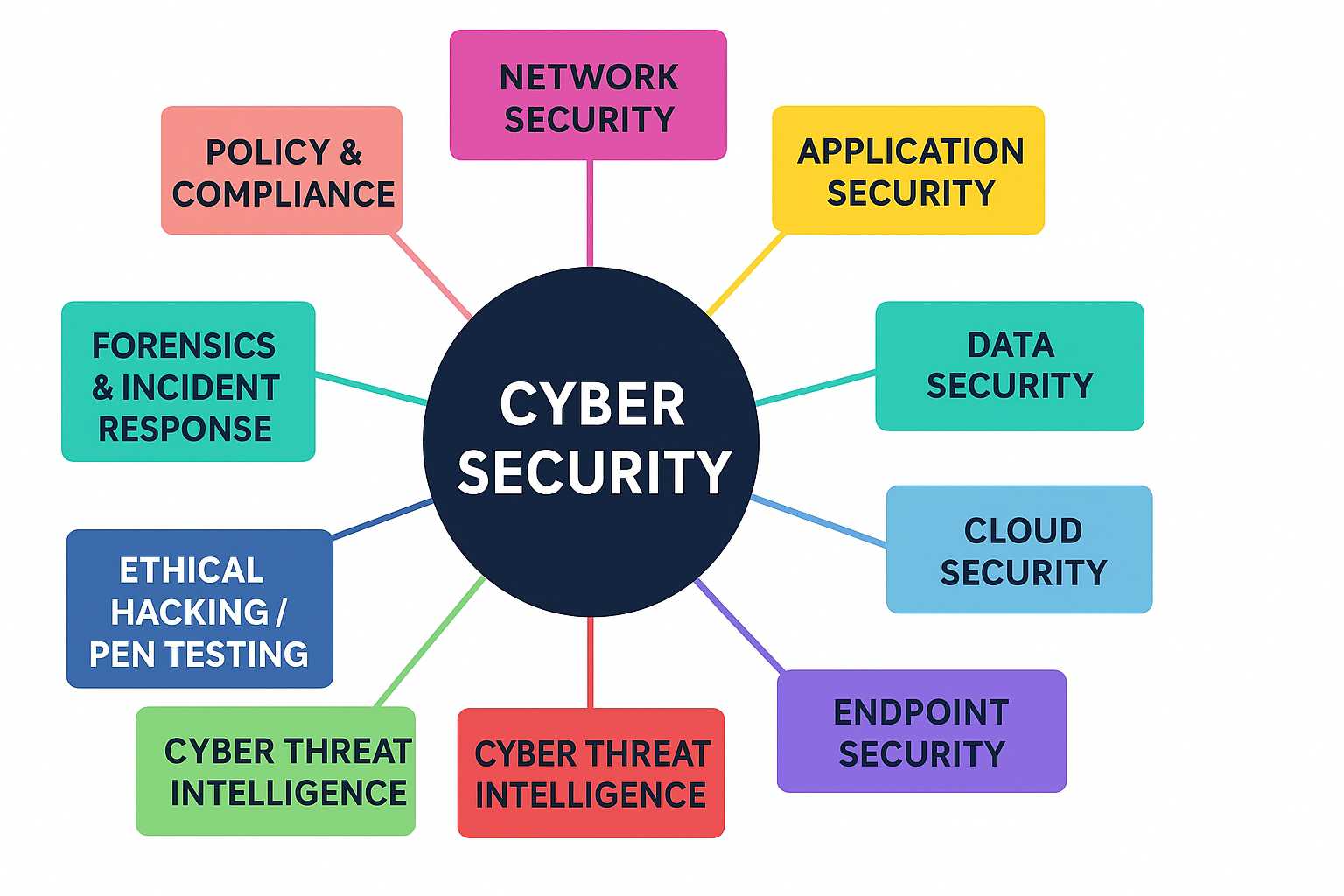Cyber Security means protecting your devices, online accounts, networks, and data from unauthorized access, hacking, malware, and digital fraud. In simple terms, it’s the lock and shield of your digital life. From online banking to shopping, social media, and remote work—everything we do is connected to the internet. Without proper protection, your personal details could end up in the wrong hands.

Think about how much time you spend online—scrolling social media, making payments, saving files to the cloud, or even just connecting to public Wi-Fi at a café. Now imagine if all of that data was exposed to hackers in seconds. Scary, right? That’s exactly why network security is such a big deal today.
Network security isn’t just a tech buzzword; it’s what keeps your personal information safe, your business running smoothly, and your bank account from getting hacked. Let’s dive into what it really means, the common threats you should know about, and how you can actually protect yourself.
What Exactly is Network Security?
In simple terms, network security is like a digital lock on your devices and online activities. Just like you wouldn’t leave your house door wide open, you can’t leave your network open for cybercriminals. It’s a combination of rules, tools, and practices that make sure only the right people have access to your data.
The goal? Keep your information confidential, safe, and always available when you need it.
Why Should You Care About Network Security?
- Your personal data is valuable. Hackers love credit card numbers, banking details, and even social media accounts.
- Business downtime costs money. If a company’s network goes down due to an attack, they lose revenue and customer trust.
- Cybercrime is on the rise. Every year, attacks are getting smarter and more frequent.
In short, strong network security isn’t optional—it’s a must.
The Biggest Cybersecurity Threats Today
- Malware – Viruses, worms, trojans… all the nasty software designed to damage or steal.
- Phishing Emails – That “Congratulations, you’ve won!” email? Yeah, don’t click it.
- Ransomware – Hackers lock your files and demand money to give them back.
- DDoS Attacks – Overloading a website or service until it crashes.
- Man-in-the-Middle Attacks – Someone secretly intercepts your communication.
- Insider Risks – Sometimes, the threat comes from inside the company itself.
Types of Network Security (and Why They Work)
- Firewalls – Like a gatekeeper that blocks unwanted traffic.
- VPNs – Make your internet activity private and secure.
- Antivirus Software – Keeps your system safe from malware.
- Email Security – Filters out spam and phishing attempts.
- Access Control – Ensures only authorized people can enter.
- Wireless Security – Protects your Wi-Fi from freeloaders and hackers.
Best Practices You Should Follow
If you’re wondering how to stay safe, here are some simple but powerful tips:
- Use strong, unique passwords (no more “123456”).
- Turn on multi-factor authentication wherever possible.
- Update your devices and apps—patches fix vulnerabilities.
- Always encrypt sensitive data.
- Backup your files—just in case ransomware strikes.
- Stay alert to phishing attempts. If it looks too good to be true, it probably is.
Why Businesses Can’t Ignore Network Security
For companies, it’s not just about protecting data—it’s about survival. One big cyberattack can ruin years of reputation and cost millions. Industries like:
- Banks need it to stop fraud.
- Healthcare relies on it to keep patient records private.
- E-commerce uses it to protect customer payment details.
- Government needs it to safeguard sensitive information.
The Future of Network Security
Cyber threats are evolving, but so are security solutions. The latest trends include:
- AI-powered security that spots unusual activity instantly.
- Zero Trust models where no one is trusted by default.
- Cloud security to protect data stored online.
- Blockchain technology for secure and transparent transactions.
The future is about smarter, faster, and stronger protection.
Conclusion
At the end of the day, network security is about peace of mind. It’s about knowing your information is safe whether you’re checking emails at home, making an online purchase, or running a global business.
Cybercriminals are only getting smarter, so protecting yourself isn’t a one-time thing—it’s an ongoing process. Strong passwords, firewalls, VPNs, employee training, and regular updates can go a long way in keeping your digital life safe.
Remember: in the online world, security isn’t a luxury—it’s a necessity.
FAQ- Cyber Security
What is Cyber Security in simple words?
Cyber Security is the practice of protecting your online accounts, data, and devices from hackers, malware, and scams.
Why is Cyber Security important in the U.S.?
Because the U.S. is one of the most targeted countries for cybercrime. Identity theft, ransomware, and online fraud cost Americans billions of dollars every year.
What are the biggest cyber threats in 2025?
Phishing, ransomware, identity theft, and AI-driven cyberattacks are considered the top threats in 2025.
How can I protect myself from hackers?
Use strong passwords, enable two-factor authentication, avoid suspicious links, keep your devices updated, and always use antivirus protection.
What is the cybercrime helpline number in the U.S.?
If you’re a victim, you can report to the FBI’s IC3 (Internet Crime Complaint Center) or call your local police department. For identity theft, contact 1-877-438-4338 (FTC Identity Theft Hotline).